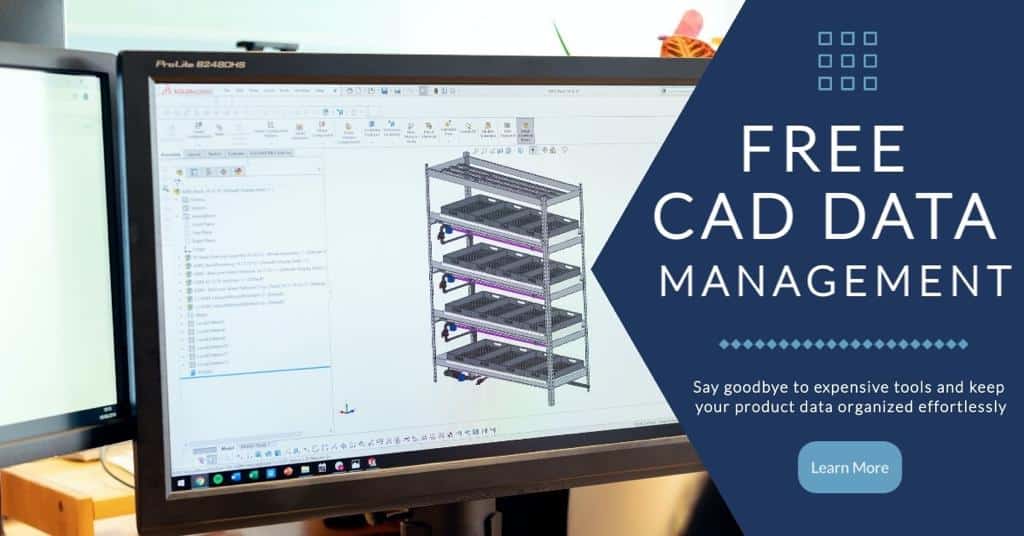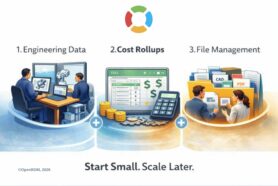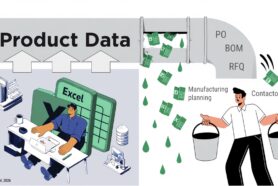
Choosing the right contract manufacturer (CM) is an important decision for anyone launching a new product. The quality of your product, the efficiency of its production, and ultimately, the success of your brand depend significantly on this choice. With the number of CMs available, the evaluation process can seem daunting and complex. How do you ensure that the CM you select not only meets your current production needs but also aligns with your business ethics, supports your growth, and maintains quality at every stage?
In this blog, we will walk you through the top 5 essential tips for thoroughly evaluating potential CMs. By the end of this blog, you should be more confident in your ability to evaluate and choose the CM that’s best for you.
Tip 1: Define Your Requirements Clearly
One of the fundamental steps in selecting the right CM for your new product involves defining your requirements with as much clarity as possible. This process is critical not just in the initial stages but as an ongoing reference point throughout your partnership with a CM.
The foundation of any partnership lies in the accuracy of the product specifications that you provide. These specifications should encompass everything from material requirements and part specifications to fabrication processes, assembly, packaging, and quality control measures. This level of detail serves several purposes:
- Precision in Production: Detailed specs ensure that the CM understands exactly what is expected, reducing the likelihood of errors and discrepancies in the final product.
- The basis for Request for Quotation (RFQ): Clear requirements allow potential CMs to provide accurate and competitive quotes.
- Regulatory Compliance: For products subject to regulatory approvals, specifications must detail compliance needs to ensure that all legal standards are met.
The clarity of your product specifications directly influences the effectiveness of your communication with a CM. When expectations are communicated unambiguously, it minimizes the risk of errors and streamlines the production process. This direct communication helps in building trust and transparency between you and the manufacturer, which are crucial for a successful partnership.
Also, when you have a clear list of what your product entails, it becomes easier to evaluate whether a CM can meet your needs. If you provide your CM with accurate production information then you achieve 3 things:
- Match your needs against the CM’s expertise and manufacturing capabilities.
- Access if the CM has the necessary quality control standard in place
- Determine if the CM can handle in volume what you require.
Tip 2: Assess Technical Expertise and Capabilities
Selecting a CM whose technical expertise and capabilities align with your product requirements is crucial. This evaluation ensures that your CM can handle not only the current specifications of your product but also adapt to scaling up production for you.
To accurately assess the technical abilities of a CM, you should analyze the following:
- Equipment and Technology: Investigate whether the CM possesses the latest or adequately advanced machinery and technology that is required to manufacture your product. This includes checking if their equipment is maintained well and updated regularly to meet industry standards.
- Technical Staff: Evaluate the qualifications, experience, and expertise of the technical staff. Skilled personnel who are adept at operating advanced machinery and who stay updated with the latest manufacturing trends are indispensable for high-quality production.
- Manufacturing Processes: Review the sophistication and suitability of the manufacturing processes used by the CM. They must demonstrate a deep understanding of the required processes for your product, including any specialized assembly or finishing techniques.
- Innovation and Development Capabilities: Determine if the CM has a track record of innovation and problem-solving. A CM with strong R&D capabilities can contribute significantly to product improvements and production efficiency.
The next step to verify the technical expertise of your CM would be to carry out a facility audit. The goal of the audit is to see the equipment and workforce in action. This can also include a review of their maintenance logs and technology upgrade schedules.
During the factory audit, you can keep an eye on the products that they are making. While it’s ok that the products are not the same as you, you want to make sure that the materials and complexities are similar to yours.
Tip 3: Consider Scalability Potential
When selecting a CM, one of the critical factors to consider is their ability to scale production up or down in response to market demands and growth projections. Scalability is vital for managing production efficiently and economically without sacrificing quality.
When analyzing if the CM can scale up production, start by examining the current production capacity of the CM, including their machinery, labor force, and operational hours. It’s important to understand their maximum output capabilities and how quickly they can increase production without additional resources.
If they are currently maxing out their production capacity are they also looking into investing in new facilities or expanding operations to digest future growth? If not, then they might not be able to support you if you scale.
It’s also important to make sure that the CM you are evaluating is flexible. During market fluctuations and downturns in the market, you will need your CM to support you through these shifts. It’s important to have flexible production capabilities for a few reasons:
- Market Responsiveness
- Cost Efficiency
- Risk Management
- Long-term Partnership
Tip 4: Analyze Communication and Responsiveness
If you lack clear communication then there is no potential for any partnership with any type of company. A CM’s ability to communicate clearly and respond promptly can greatly influence the efficiency and quality of your product development cycle. Here’s how you can assess the communication and responsiveness of a CM and understand their impact on project management and issue resolution.
When evaluating communication and responsibilities, keep an eye out for the following:
- Communication Channels
- Language and Clarity
- Response Time
- Regular Updates
- Crisis Communication
Analyzing a CM’s communication practices and responsiveness gives significant insights into their operational integrity and commitment to your project. By prioritizing these traits when selecting a CM, you ensure smoother project management, more effective issue resolution, and ultimately, a more successful product launch. Effective communication forms the backbone of any collaborative effort and is indispensable for achieving mutual business goals.
Tip 5: Review References and Track Record
Something that might be difficult to analyze but is necessary is to look at their track record and references. This part is sometimes not taken too seriously. Oftentimes, a CM will boast of having certain customers but those customers might not be happy with the CM’s performance.
If you are visiting the CM, have a look at the products they are manufacturing and reach out to someone at that company. It’s important to reach out to that customer and get their feedback and experience of working with the CM you are evaluating. You will be surprised by how many manufacturers are working with CMs they are not fully satisfied with.
These references will offer an insight into things you can’t see, such as
- Reliability Confirmation
- Cultural Fit
- On-Time Shipments
- Their Quality
For all of these points, the CM will provide answers but asking customers will provide the actual answer.
Conclusion
Selecting the right CM is a pivotal decision for any business looking to launch a new product. It involves more than just assessing costs and capabilities; it requires a comprehensive evaluation to ensure they can meet your specific needs and help drive your business toward success.
Remember, the relationship with your CM is a partnership that extends beyond mere transactional interactions. It is a collaboration that can influence your product’s quality, your brand’s reputation, and your company’s performance in the market. Therefore, invest the time and effort needed to choose a CM that you can trust, communicate openly with, and rely on through the ups and downs of product development and scaling.
Interested in OpenBOM? Let us know. We are happy to talk.
By: Jared Haw
Join our newsletter to receive a weekly portion of news, articles, and tips about OpenBOM and our community.











